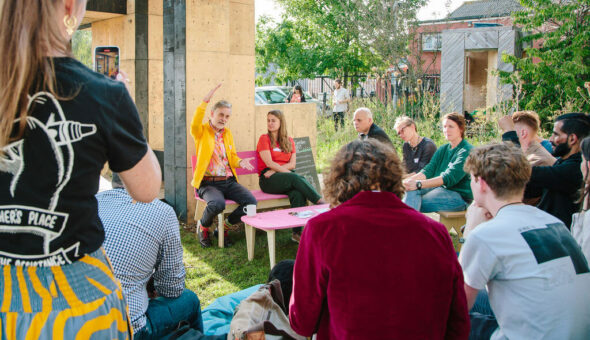Russell Arnott (Architecture & Civil Engineering) was awarded £461.48 to develop school-based public engagement activities and to support members of the Water, Environment & Infrastructure Resilience (WEIR) centre to develop their public engagement skills.
Russell is a postgraduate researcher in the Water, Environment and Infrastructure Resilience (WEIR) research centre. The centre studies water in all its capacities and it has grown a considerable amount in numbers since it started in 2013. They have coastal engineers studying how to protect our coasts; limnologists trying to make our reservoirs cleaner; computer modellers trying to understand how floods occur; and microbiologists studying the diseases found in water.
The project was designed to get people thinking about the importance of water and the processing that goes on in order for us to be able to turn on tap and drink the water. Clean water is something we take for granted in the UK so it’s important to be aware that almost half of the world’s population doesn’t share that luxury.
For the project, Russell gathered seven colleagues from WEIR to raise their confidence and aspirations when engaging different audiences with their research. They took part in a seminar where Russell, who used to be a teacher, coached them through the language and approaches they should use when talking to non-specialists. They all had to present their research to a class of children using only one slide and then answer questions. He trialled some activities and the presentations with them and offered constructive feedback. The aim of the event was to raise awareness about the importance of water; to increase researchers’ confidence when engaging with non-specialists; and to help children realise that science isn’t done by white men in lab coats (most of the researchers that took part were female).
The team also went to schools to teach the children about the importance of water quality by carrying out activities with them, including identifying animals from dirty pond water and learning how to filter dirty water. The children were given muddy water that they mixed in with other substances, such as glitter, to represent diseases and other contamination. At the end, the water was filtered and the solids were recovered and put in the bin. Russell found it a fun experience to be teaching again, and everyone from the department was grateful for the opportunity and found it helpful to gain experience in talking to non-academics. Russell enjoyed seeing his colleagues, who were initially nervous about going to the schools due to their lack of experience with children, relax into it and interact with them.
Initially, it was challenging for Russell to find a way to co-ordinate people because there are a lot of people in WEIR and he wanted to give them all equal opportunity to take part. Although Russell feels that the activities were only loosely related to his research-themes, they were important because they resulted in members of WEIR being more able to communicate ideas effectively to a non-academic audience. To encourage people to do public engagement, having someone within the department to mobilise, support and coordinate it is key.
Originally, the group were going to attend the NCCPE conference in Bristol, but unfortunately they were unable to attend it due to timings. However, they held a public engagement talk about their research at the Bath Taps in Science event this year, which Andrew Ross helped them to organise. Russell thinks it is very important to have a culture of public engagement. He believes that if you are an academic, you should incorporate public engagement in research, as it’s hugely useful and valuable.
Contact Russell (r.n.arnott@bath.ac.uk) for further information about his project.
Respond


